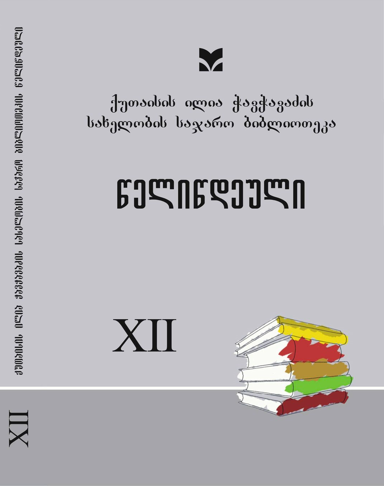აჭარიდან სამცხე-ჯავახეთში გადმოსახლებული ეკომიგრანტები და მათი სამეტყველო კოდები
საკვანძო სიტყვები:
ეკომიგრანტები, ეკომიგრაცია, ბუნებრივი კატასტროფები, სამცხე-ჯავახეთის მიგრანტები, ეკომიგრანტების მეტყველებაანოტაცია
Eco-migration is one of the most important challenges of all the countries of the world. It is already the last decades since Georgia has been joined the countries harmed by natural disasters. Since the 80s of the XX century, the cases of natural disasters have been increased in the highland regions of Georgia. The natural disaster took place in highland regions of Adzharia, where the landslip ruined and damaged the houses. 5, 657 households (24, 287 people) were suffered and seaside Adzharia, Guria, Shida Kartli, Kvemo Kartli, Kakheti, Imereti, and Samtskhe-Javakheti regions were selected as the places for resettlement of the harmed population. The majority of the eco-migrants were re-settled in the places populated by the minorities and borderline regions.
The problem is important because the paper refers to and includes the researches, reports, data of local and international organizations, the media reports, and informants’ interviews on the topic. The paper reads that eco-migrants settled in Samtskhe Javakheti decades ago still face certain problems.
The paper describes several types of eco migrant speech codes. The goal of this paper is to present the statistics of the eco-migrants resettlement from Adzharia to Samtskhe-Javakheti, their settlement according to the territories, identification of the problem and analysis, the state policy on the problem, the study of speech codes of the eco-migrants.
Key Findings:
Resettlement of the eco-migrants has been intensively started in 1981 and 1990.
There were several phases of the resettlement including in 1981-83, 1985, 1989, and 1990. The majority of the resettled in 1981-88 were relocated in Aspindza and Adigeni municipalities. While the process was less intensive in 1989-90 compared to 1982-83 and 1985.
Eco-migrants live in all the municipalities of Samtskhe-Javakheti, including Borjomi, Akhaltsikhe, Adigeni, Aspindza, Akhalkalaki, and Ninotsminda municipalities. Mainly they are settled as separate villages or parts of the communities. Even the villages were built for them in the 80s of the previous century.
The key problems and root causes of the resettled population identified in the study are as follows:
1. Unfavorable climate (natural) conditions;
2. The conflicts emerged on the political, ethnic, religious, and social ground
3. Lack of integration processes
4. Implementation of Georgian national interests
5. Psychological, social-cultural, and economic adaptation
6. Integration with the local population and social-cultural adaptation
7. Uncleared rights of ownership
8. Hard economic conditions, unemployment
9. Inaccessible or lack land and forest resources
10. Lack of potable and irrigation water
11. Problems with access to the internet
The environment where the eco-migrants used to resettle was diversified in terms of ethnicity and religion. Integration is very important for the population in the new surroundings, which should be supported by both parties and especially, by the state.
The speech of Adzharian eco-migrants of Samtskhe-Javakheti resettled in the mixed communities is much closer to the literary language than the one of the migrants being more densely settled. The dialect forms, intonations, and accents are preserved in the speech of the densely settled.
Several types of speech codes are found:
1. 1. Dominance of the literary language. The main speech is a dialect and the vocabulary units or phrases of the literary languages are included.
2. 2. Dominance of the dialect, where literary Georgian language is the main, but the lexical units or phrases of the dialect are included;
3. 3. Mixture of the speech codes and dominance of the literary language patterns, where Armenian, Russian (in Javakheti), Imeretian dialect (in the communities settled by Imeretians), Mtiulury (in the communities of Mtiulis) lexical units are presented




